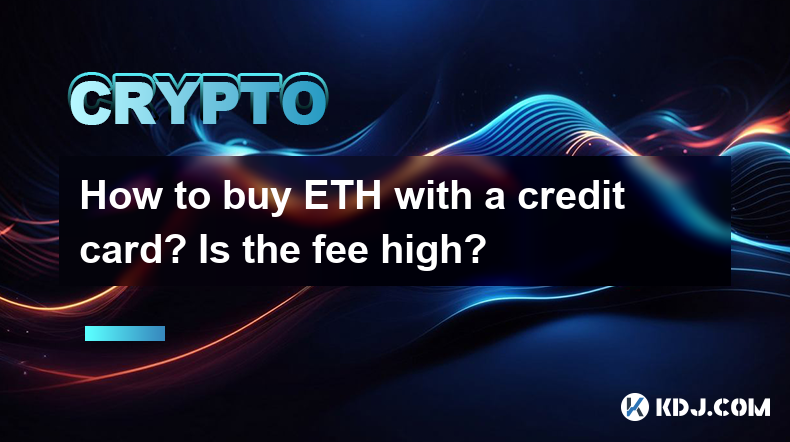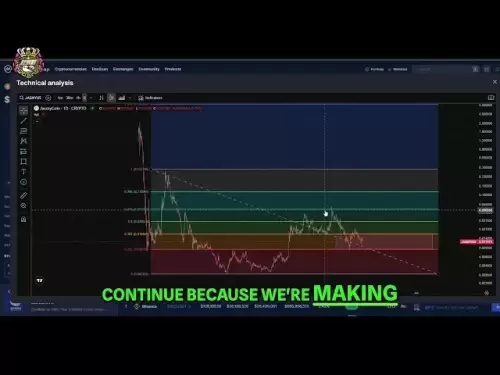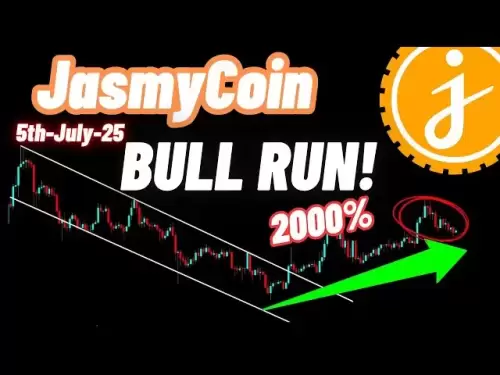-
 Bitcoin
Bitcoin $108,250.0992
0.11% -
 Ethereum
Ethereum $2,515.9404
0.03% -
 Tether USDt
Tether USDt $1.0003
0.00% -
 XRP
XRP $2.2166
-0.19% -
 BNB
BNB $656.5904
0.29% -
 Solana
Solana $147.4122
-0.58% -
 USDC
USDC $1.0000
-0.01% -
 TRON
TRON $0.2830
0.06% -
 Dogecoin
Dogecoin $0.1641
0.27% -
 Cardano
Cardano $0.5739
-0.19% -
 Hyperliquid
Hyperliquid $39.1463
-0.11% -
 Sui
Sui $2.8882
-0.02% -
 Bitcoin Cash
Bitcoin Cash $487.6428
0.31% -
 Chainlink
Chainlink $13.2097
0.07% -
 UNUS SED LEO
UNUS SED LEO $9.0308
0.10% -
 Avalanche
Avalanche $17.8608
0.13% -
 Stellar
Stellar $0.2379
-0.06% -
 Toncoin
Toncoin $2.7400
-0.39% -
 Shiba Inu
Shiba Inu $0.0...01144
-0.36% -
 Litecoin
Litecoin $87.5467
0.66% -
 Hedera
Hedera $0.1538
0.22% -
 Monero
Monero $315.5479
0.36% -
 Dai
Dai $1.0000
0.00% -
 Polkadot
Polkadot $3.3523
-0.71% -
 Ethena USDe
Ethena USDe $1.0003
0.01% -
 Bitget Token
Bitget Token $4.3960
-1.03% -
 Uniswap
Uniswap $7.2663
4.19% -
 Aave
Aave $272.8619
2.04% -
 Pepe
Pepe $0.0...09676
-0.18% -
 Pi
Pi $0.4586
-2.87%
How to buy ETH with a credit card? Is the fee high?
Buying ETH with a credit card is easy but fees can be high, ranging from 5% to 10%. Choose a reliable exchange like Coinbase or Binance for your purchase.
Apr 28, 2025 at 12:28 pm

How to buy ETH with a credit card? Is the fee high?
Buying Ethereum (ETH) with a credit card is a straightforward process that allows you to quickly acquire the cryptocurrency. However, it's important to be aware of the fees involved, as they can be higher compared to other payment methods. In this article, we will walk you through the steps to purchase ETH using a credit card and discuss the associated fees in detail.
Choosing a Reliable Cryptocurrency Exchange
The first step in buying ETH with a credit card is to choose a reliable cryptocurrency exchange that supports this payment method. Some popular exchanges that allow you to buy ETH with a credit card include Coinbase, Binance, and Kraken. It's crucial to select an exchange that is reputable, secure, and compliant with regulations in your jurisdiction.
When choosing an exchange, consider factors such as user interface, security features, customer support, and the fees associated with credit card transactions. Take the time to research and compare different exchanges to find the one that best suits your needs.
Creating an Account and Verifying Your Identity
Once you have selected an exchange, you'll need to create an account and complete the verification process. Follow these steps to set up your account:
- Visit the exchange's website and click on the "Sign Up" or "Register" button.
- Fill out the registration form with your personal information, including your name, email address, and password.
- Verify your email address by clicking on the confirmation link sent to your inbox.
- Complete the identity verification process, which typically involves submitting a government-issued ID and a proof of address document.
- Wait for the exchange to review and approve your verification request.
The verification process may take anywhere from a few minutes to several days, depending on the exchange and the volume of verification requests they are processing. Be patient and ensure that you provide accurate and complete information to avoid delays.
Adding a Credit Card to Your Account
After your account is verified, you can proceed to add your credit card to the exchange. Follow these steps to link your credit card:
- Log in to your exchange account and navigate to the payment methods or wallet section.
- Click on the option to add a new payment method and select "Credit Card."
- Enter your credit card details, including the card number, expiration date, and CVV code.
- Some exchanges may require you to complete a small test transaction to verify your card.
- Wait for the exchange to process and approve your credit card.
Note that some credit card issuers may treat cryptocurrency purchases as cash advances, which can result in higher fees and interest rates. It's advisable to check with your credit card provider to understand their policies regarding cryptocurrency transactions.
Buying ETH with Your Credit Card
Once your credit card is linked to your exchange account, you can proceed to buy ETH. Follow these steps to complete your purchase:
- Navigate to the "Buy/Sell" or "Trade" section of the exchange.
- Select ETH as the cryptocurrency you want to purchase.
- Enter the amount of ETH you wish to buy or the amount of money you want to spend.
- Choose your credit card as the payment method.
- Review the transaction details, including the exchange rate, fees, and the total amount to be charged to your credit card.
- Confirm the transaction and enter any required security codes or 2-factor authentication (2FA) to complete the purchase.
The exchange will process your order and deduct the total amount from your credit card. The purchased ETH will be credited to your exchange wallet, and you can view your transaction history to confirm the purchase.
Understanding the Fees Associated with Buying ETH with a Credit Card
When buying ETH with a credit card, you need to be aware of the various fees that may apply. These fees can include:
- Exchange fees: Most exchanges charge a fee for processing credit card transactions. This fee is typically a percentage of the transaction amount and can range from 3% to 5%.
- Credit card processing fees: Your credit card issuer may charge a processing fee for cryptocurrency transactions, which can be around 3% of the transaction amount.
- Cash advance fees: If your credit card treats cryptocurrency purchases as cash advances, you may be charged a cash advance fee, which can be a percentage of the transaction amount or a flat fee.
- Network fees: When transferring ETH from the exchange to your personal wallet, you may need to pay a network fee (also known as a gas fee) to the Ethereum network.
The total fees associated with buying ETH with a credit card can range from 5% to 10% of the transaction amount. It's essential to review the fee structure of the exchange and your credit card issuer to understand the total cost of your purchase.
Frequently Asked Questions
Q: Can I buy ETH with a debit card instead of a credit card?
A: Yes, many cryptocurrency exchanges also support buying ETH with a debit card. The process is similar to using a credit card, but the fees may differ. Debit card transactions are typically treated as regular purchases and may not incur cash advance fees.
Q: Are there any limits on how much ETH I can buy with a credit card?
A: Yes, exchanges often impose limits on credit card purchases to comply with anti-money laundering (AML) and know-your-customer (KYC) regulations. These limits can vary depending on your verification level and the exchange's policies. You may need to provide additional documentation to increase your purchase limits.
Q: How long does it take to receive the ETH after buying with a credit card?
A: The time it takes to receive the ETH after a credit card purchase can vary depending on the exchange and the processing time of your credit card transaction. In most cases, the ETH will be credited to your exchange wallet instantly or within a few minutes. However, it may take longer for the transaction to be fully settled and for the funds to be available for withdrawal.
Q: Can I use a prepaid credit card to buy ETH?
A: Some exchanges allow the use of prepaid credit cards for buying ETH, while others may not support this payment method. It's best to check with the exchange to confirm their policy on prepaid cards. Keep in mind that prepaid cards may have lower purchase limits and may not be accepted by all exchanges.
Disclaimer:info@kdj.com
The information provided is not trading advice. kdj.com does not assume any responsibility for any investments made based on the information provided in this article. Cryptocurrencies are highly volatile and it is highly recommended that you invest with caution after thorough research!
If you believe that the content used on this website infringes your copyright, please contact us immediately (info@kdj.com) and we will delete it promptly.
- Ruvi AI: The Avalanche of Returns Crashing into the Crypto Scene
- 2025-07-06 08:30:13
- XRP's Wild Ride: Is a Parabolic Bull Run on the Horizon?
- 2025-07-06 08:30:13
- Bitcoin, Suspicion, and Billions: Decoding the Crypto Whale Moves
- 2025-07-06 08:50:13
- Bitcoin's Price Discovery Quest: Rally Structure Under the Microscope
- 2025-07-06 08:50:13
- Chainlink's Bullish Blueprint: Price Prediction and the Harmonic Pattern
- 2025-07-06 06:30:12
- Ruvi AI: The Audited Token Promising ROI That'll Make Your Head Spin
- 2025-07-06 06:30:12
Related knowledge

How to customize USDT TRC20 mining fees? Flexible adjustment tutorial
Jun 13,2025 at 01:42am
Understanding USDT TRC20 Mining FeesMining fees on the TRON (TRC20) network are essential for processing transactions. Unlike Bitcoin or Ethereum, where miners directly validate transactions, TRON uses a delegated proof-of-stake (DPoS) mechanism. However, users still need to pay bandwidth and energy fees, which are collectively referred to as 'mining fe...

USDT TRC20 transaction is stuck? Solution summary
Jun 14,2025 at 11:15pm
Understanding USDT TRC20 TransactionsWhen users mention that a USDT TRC20 transaction is stuck, they typically refer to a situation where the transfer of Tether (USDT) on the TRON blockchain has not been confirmed for an extended period. This issue may arise due to various reasons such as network congestion, insufficient transaction fees, or wallet-rela...

How to cancel USDT TRC20 unconfirmed transactions? Operation guide
Jun 13,2025 at 11:01pm
Understanding USDT TRC20 Unconfirmed TransactionsWhen dealing with USDT TRC20 transactions, it’s crucial to understand what an unconfirmed transaction means. An unconfirmed transaction is one that has been broadcasted to the blockchain network but hasn’t yet been included in a block. This typically occurs due to low transaction fees or network congestio...

How to check USDT TRC20 balance? Introduction to multiple query methods
Jun 21,2025 at 02:42am
Understanding USDT TRC20 and Its ImportanceUSDT (Tether) is one of the most widely used stablecoins in the cryptocurrency market. It exists on multiple blockchain networks, including TRC20, which operates on the Tron (TRX) network. Checking your USDT TRC20 balance accurately is crucial for users who hold or transact with this asset. Whether you're sendi...

What to do if USDT TRC20 transfers are congested? Speed up trading skills
Jun 13,2025 at 09:56am
Understanding USDT TRC20 Transfer CongestionWhen transferring USDT TRC20, users may occasionally experience delays or congestion. This typically occurs due to network overload on the TRON blockchain, which hosts the TRC20 version of Tether. Unlike the ERC20 variant (which runs on Ethereum), TRC20 transactions are generally faster and cheaper, but during...

The relationship between USDT TRC20 and TRON chain: technical background analysis
Jun 12,2025 at 01:28pm
What is USDT TRC20?USDT TRC20 refers to the Tether (USDT) token issued on the TRON blockchain using the TRC-20 standard. Unlike the more commonly known ERC-20 version of USDT (which runs on Ethereum), the TRC-20 variant leverages the TRON network's infrastructure for faster and cheaper transactions. The emergence of this version came as part of Tether’s...

How to customize USDT TRC20 mining fees? Flexible adjustment tutorial
Jun 13,2025 at 01:42am
Understanding USDT TRC20 Mining FeesMining fees on the TRON (TRC20) network are essential for processing transactions. Unlike Bitcoin or Ethereum, where miners directly validate transactions, TRON uses a delegated proof-of-stake (DPoS) mechanism. However, users still need to pay bandwidth and energy fees, which are collectively referred to as 'mining fe...

USDT TRC20 transaction is stuck? Solution summary
Jun 14,2025 at 11:15pm
Understanding USDT TRC20 TransactionsWhen users mention that a USDT TRC20 transaction is stuck, they typically refer to a situation where the transfer of Tether (USDT) on the TRON blockchain has not been confirmed for an extended period. This issue may arise due to various reasons such as network congestion, insufficient transaction fees, or wallet-rela...

How to cancel USDT TRC20 unconfirmed transactions? Operation guide
Jun 13,2025 at 11:01pm
Understanding USDT TRC20 Unconfirmed TransactionsWhen dealing with USDT TRC20 transactions, it’s crucial to understand what an unconfirmed transaction means. An unconfirmed transaction is one that has been broadcasted to the blockchain network but hasn’t yet been included in a block. This typically occurs due to low transaction fees or network congestio...

How to check USDT TRC20 balance? Introduction to multiple query methods
Jun 21,2025 at 02:42am
Understanding USDT TRC20 and Its ImportanceUSDT (Tether) is one of the most widely used stablecoins in the cryptocurrency market. It exists on multiple blockchain networks, including TRC20, which operates on the Tron (TRX) network. Checking your USDT TRC20 balance accurately is crucial for users who hold or transact with this asset. Whether you're sendi...

What to do if USDT TRC20 transfers are congested? Speed up trading skills
Jun 13,2025 at 09:56am
Understanding USDT TRC20 Transfer CongestionWhen transferring USDT TRC20, users may occasionally experience delays or congestion. This typically occurs due to network overload on the TRON blockchain, which hosts the TRC20 version of Tether. Unlike the ERC20 variant (which runs on Ethereum), TRC20 transactions are generally faster and cheaper, but during...

The relationship between USDT TRC20 and TRON chain: technical background analysis
Jun 12,2025 at 01:28pm
What is USDT TRC20?USDT TRC20 refers to the Tether (USDT) token issued on the TRON blockchain using the TRC-20 standard. Unlike the more commonly known ERC-20 version of USDT (which runs on Ethereum), the TRC-20 variant leverages the TRON network's infrastructure for faster and cheaper transactions. The emergence of this version came as part of Tether’s...
See all articles

























































































